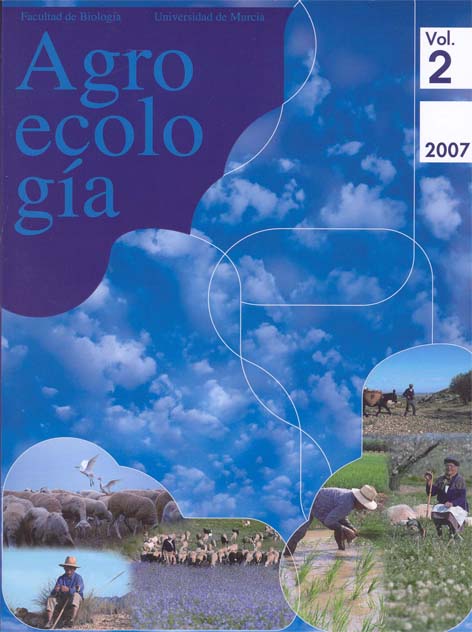AGROECOLOGICAL PEST MANAGEMENT IN THE URBAN AGRICULTURE. CASE STUDY HAVANA CITY, CUBA
Abstract
The urban agriculture in Cuba has become an important source of production of vegetables and other fresh agricultural products that is carried out inside the cities and in its periphery, by means of diverse culture systems of well-known as “organopónicos” and other orchards, where the employment of synthetic pesticides is not allowed. A study was made during the years 2003-2005 in municipalities and representative production systems of the main horticultural crops, that have been developed in the urban and periurban agriculture of the Havana city, by means of a process of participative research to characterize the pest management. We provided that the farmers have carried out innovations to adopt diverse agroecological practices, mainly the management of the floristic diversity, agronomic management of cultivations and biological control, all at level of the production system, what confers a systemic focus. They stand out for their acceptance for the farmers the rotations and the associations of cultivations, the barriers of corn and other plants, use of repellent plants, the live enclosed in the periphery with diverse purposes, the development of natural enemies’ reservoirs, the biopesticides applications and the elaboration and application of botanical preparations, among others.Downloads
Las obras que se publican en esta revista están sujetas a los siguientes términos:
1. El Servicio de Publicaciones de la Universidad de Murcia (la editorial) conserva los derechos patrimoniales (copyright) de las obras publicadas, y favorece y permite la reutilización de las mismas bajo la licencia de uso indicada en el punto 2.
2. Las obras se publican en la edición electrónica de la revista bajo una licencia Creative Commons Reconocimiento-NoComercial-SinObraDerivada 3.0 España (texto legal). Se pueden copiar, usar, difundir, transmitir y exponer públicamente, siempre que: i) se cite la autoría y la fuente original de su publicación (revista, editorial y URL de la obra); ii) no se usen para fines comerciales; iii) se mencione la existencia y especificaciones de esta licencia de uso.
3. Condiciones de auto-archivo. Se permite y se anima a los autores a difundir electrónicamente las versiones pre-print (versión antes de ser evaluada) y/o post-print (versión evaluada y aceptada para su publicación) de sus obras antes de su publicación, ya que favorece su circulación y difusión más temprana y con ello un posible aumento en su citación y alcance entre la comunidad académica. Color RoMEO: verde.





